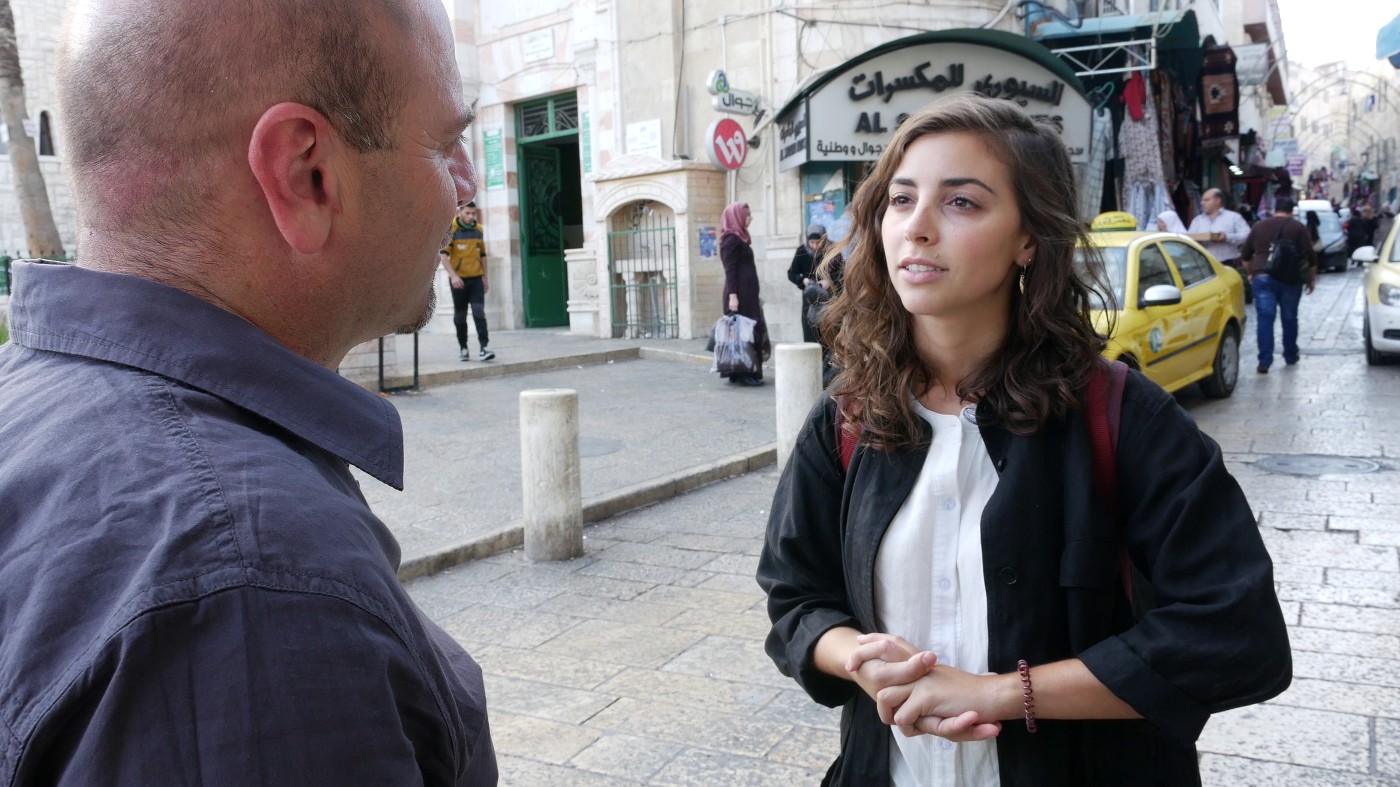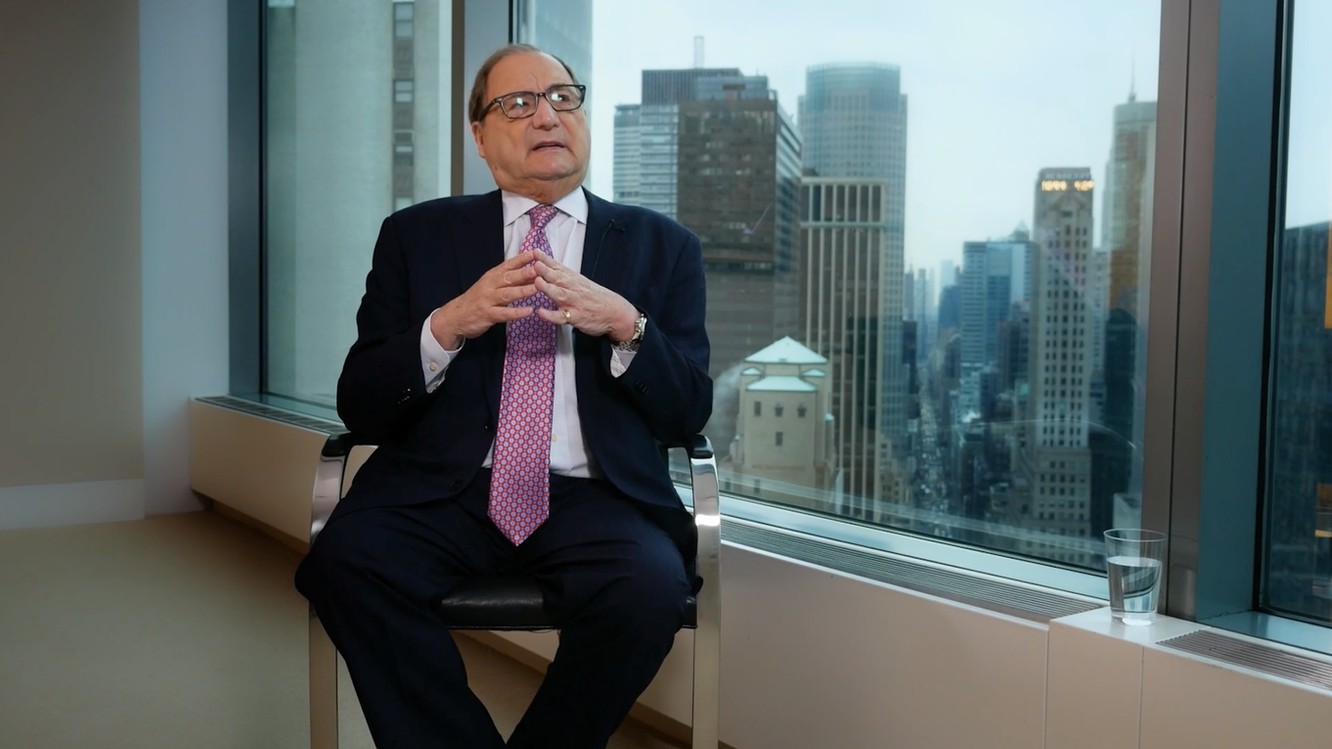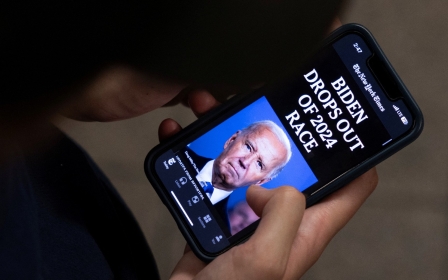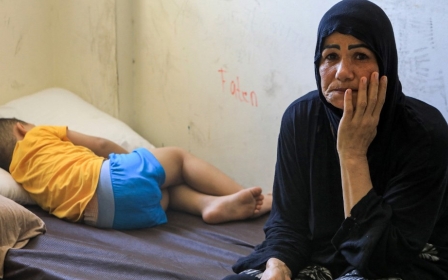Israelism: The film that exposes the US-Israel propaganda machine
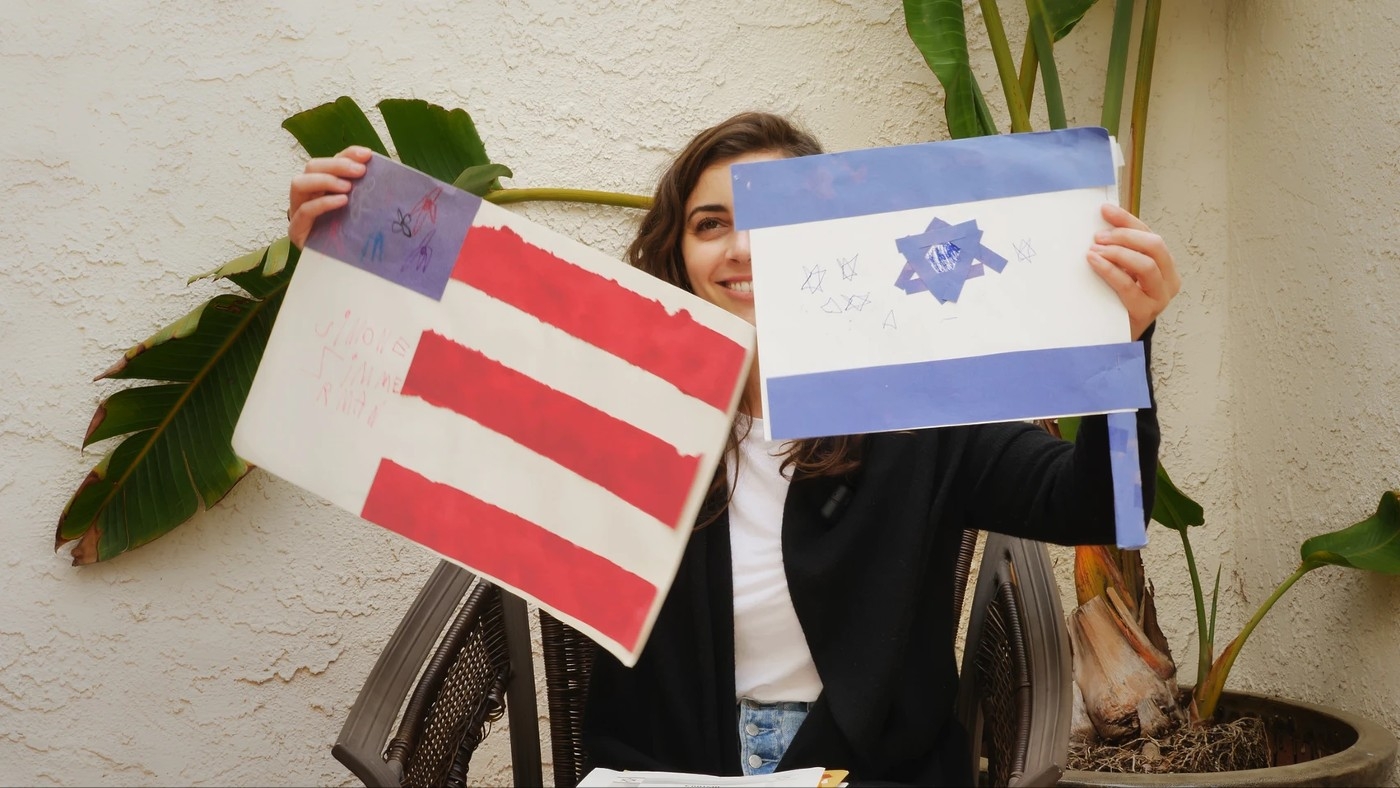
The lights go down in a packed auditorium in Jerusalem. The room is full of young Jewish Americans on a tour of Israel, partly paid for by the Israeli government.
Dance music plays. A video backdrop shows images of tanks rolling through grassland, golden sunsets and Apache helicopters. Beautiful young men and women in Israeli army uniform march singing onto the stage.
“The non-Jewish community does not understand our fixation, our obsession with Israel,” an older man, who we later discover is former Anti-Defamation League (ADL) director Abraham Foxman, says on the voiceover.
We hear another narrative voice - a younger woman. “Israeli soldiers, they’re hot, they’re awesome, they’re strong. They’re everything we could all want to be,” she says.
It has been almost a year since the Hamas-led attacks of 7 October, which killed 1,139 people. Almost a year of the subsequent Israeli assault on Gaza, which has killed over 42,000 people, including nearly 16,500 children. It has been almost a year.
New MEE newsletter: Jerusalem Dispatch
Sign up to get the latest insights and analysis on Israel-Palestine, alongside Turkey Unpacked and other MEE newsletters
And yet, the United States continues to arm and support Israel, while providing it with endless diplomatic cover as it crosses one supposed US "red line" after another, dragging the wider region into a state of war as it does.
Israel has been a key US ally for decades, and the vast disparity between the way Washington responds to its friend Israel’s war on Gaza and its enemy Russia’s war on Ukraine is clear for all to see.
There are strategic, economic and geopolitical reasons for this. But there are also emotional, historical and cultural ones, with an industry in the US dedicated to fostering deep support for Israel among Americans, particularly Jewish Americans.
'Israelism'
Made before 7 October, the critically acclaimed documentary feature film Israelism, which begins with the all-singing, all-dancing Mega Event in Jerusalem, organised by the Birthright Israel Foundation, which arranges free trips to Israel for young Jews from all around the world, investigates the pro-Israel propaganda machine in the US and the journey some young Jewish Americans are taking away from it.
At the heart of the documentary are Simone Zimmerman, who grew up in Los Angeles, went to Jewish school and lived in Israel on an exchange programme; and fellow American Eitan, who joins the Israeli army after graduating high school.
Zimmerman shows us illustrations of Israeli flags and maps of “My Israel” she drew as a child and talks about a world in which support for – and love of – Israel was baked into the environment.
'It took me many years to come to terms with my part in it'
- Eitan, former Israeli soldier
Eitan is immersed in something similar. He grows up being told that the land Israel is on is “our land”. He tells his parents that he doesn’t even need to go to college because he can join the Israeli army. “I wanted to defend what I saw as my country,” he says.
But experience changes both these young Jewish Americans. As a teenager, Zimmerman is taught that there are “ways to support Israel”. You can join the army. But you can also fight the "other war" and become an “Israel advocate”. The annual conference of pro-Israel lobbying group Aipac seemed, to Zimmerman, to be “a community event”.
Once she’s at university, at Berkeley in California, Zimmerman goes out to defend Israel in campus debates.
But when, at one of these, she listens to Palestinians speaking about their families being bombed in Gaza, or about being beaten at checkpoints, she realises that she can’t just listen to hours of testimony about life under Israeli occupation and dismiss it all as lies. She can’t “look at every single of of these students and say, ‘You’re a terrorist, you’re a terrorist’.”
When she goes back to Hillel, the largest Jewish campus organisation in the world, which has Israeli government-sponsored fellows present in universities across the US, she is met with silence. “People in the Jewish community were really scared to talk about the actual hard questions that we were being asked to answer about Israel's actions,” she says.
And so she goes to the West Bank, meets Palestinians and other Jews who are on the same political journey as her. This is a journey that has taken her away from her childhood and put her at odds with many in the community she has come from - she is attacked as a "self-loathing Jew" and an "antisemitic Jew" - but it is shown in Israelism as a journey into the light, into the truth.
For Eitan, the process of discovery is even more brutal. Having joined the Israeli army he is trained for war – “to conquer hilltops”, to engage in “urban warfare simulated in what looked like Arab housing”. He is deployed to the occupied West Bank to “protect settlements, it was all for the protection of the settlements”.
There are 700,000 Israeli settlers “living illegally in the occupied West Bank”, according to the UN, and at least 60,000 of them are Americans, the kind of Americans Israelism shows whooping and hollering at Birthright’s Mega Event.
As well as the brutal reality of the occupation, Eitan witnesses the beating of a young Palestinian in custody. “I felt responsible,” he says. “But my commander wasn’t saying anything… I didn’t even speak up. That’s just one of many stories I have from my time in the army.”
“It took me many years to come to terms with my part in it,” he says. The first time he spoke about it, he cried the whole time.
Journeys of transformation
Erin Axelman, who directed Israelism alongside Sam Eilertsen, told me their story was “related to those of the main characters in our film”. Having experienced some bullying and “mild antisemitism” as a Jewish kid growing up in the US state of Maine, Axelman found stories about the creation of Israel incredibly empowering as a child.
“It had always been difficult and depressing for me to learn about the millennia of oppression the Jewish people faced as a young person, and when I began learning about the history of Israel, Israel really seemed like the light at the end of the tunnel. After so much oppression, we had finally returned to our ancestral home and could be powerful - we finally controlled our own destiny,” the director says.
But when they got to high school, a teacher – who knew that Axelman’s family were fellow left-wingers – asked his student a “question that changed my life”: “Do you know anything about Palestinian history?” Axelman realised they didn’t. All of the pro-Israel books they'd read didn’t talk about Palestinians. “They mentioned Arabs if anything, and when they talked about Arabs, it was as an obstacle to be dealt with…”
'Israel is Judaism and Judaism is Israel. You can’t separate it'
- Jacqui Schulefand, former Jewish day school teacher
The teacher encouraged Axelman to read books by Palestinian and left-wing Israeli historians, including Rashid Khalidi and Tom Segev.
“They spoke openly about the Nakba and the occupation, and I began to realise that there was a massive part of the story I had been missing,” Axelman says. “That began my own journey of transformation.”
Alongside these stories of transformation – increasingly common among young Jewish Americans – Israelism interviews people committed to bolstering support for Israel in the US, while also filming in the occupied West Bank and telling, through contributors Baha Hilo and Sami Awad, the story of the Nakba.
Jacqui Schulefand, a former Jewish school teacher and director of engagement at the University of Connecticut’s chapter of Hillel, says: “Israel is Judaism and Judaism is Israel. You can’t separate it.”
The Birthright foundation, co-founded by billionaire hedge fund manager Michael Steinhardt, gets particular attention, with its free trips to Israel partly funded by the Israeli state. “On Birthright tours, you had Israeli soldiers with you all the time,” says Josh, a University of Connecticut student.
Sitting next to Josh is Tom Barkan, placed by the Israeli government in the university as an Israel fellow. “Name a university in America and we probably have a person there,” Barkan says.
A former Israeli army soldier, Barkan has since 7 October rejoined the army, posting on Facebook: “Please don't say you care about the ‘innocent Palestinians’ suffering if the truth is you are an Israel-hating antisemite.”
Rabbi Bennett Miller, of the association of Reform Zionists of America, spells out the propaganda: “We are planting seeds that are eventually going to blossom… Does the average congregant understand that I’m teaching them to become Zionists? Probably not.”
The commitment of these people and institutions to fighting for Israel – and opposing any Jews who question Zionism – is clear.
Yishai Fleischer, spokesman for the Hebron settlement, tells the filmmakers there are “Jihadist elements who don’t accept our presence here. But it’s tough for them. It’s a great vision coming to fruition in our lifetime, and nothing’s going to stop us.”
“What makes an 18-year-old American kid who was given a ten-day trip for free in Palestine, what makes them want to come in and sacrifice his life,” asks Baha Hilo, a Palestinian teacher from Bethlehem. “Why would a foreigner think it’s OK to have superior rights to the rights of the indigenous population? Because someone told them it was home.”
Back in the US, the ADL’s Foxman – of whom President Joe Biden once said, “I learned a long time ago there is no way you can say no to Abe” – calls young, anti-Zionist Jews “a little super naïve”, and says that while Israel is “still under threat from its neighbours, we postpone that philosophical debate for another time”.
But many young Jews in the US have no interest in postponement, particularly not while the US-backed Israeli military commits genocide in Gaza.
“Pro-Israel organisations may have the loudest voice, but they do not represent the entirety of our community, and there are more and more American Jews saying not in my name, and supporting equality and justice for all people who live between the river and the sea,” Axelman tells me.
As Eitan says, of his decision to speak openly and often about his time in the Israeli army: “We can’t wait any longer.”
Israelism is available to watch on a number of streaming sites. Information can be found here.
Middle East Eye delivers independent and unrivalled coverage and analysis of the Middle East, North Africa and beyond. To learn more about republishing this content and the associated fees, please fill out this form. More about MEE can be found here.



